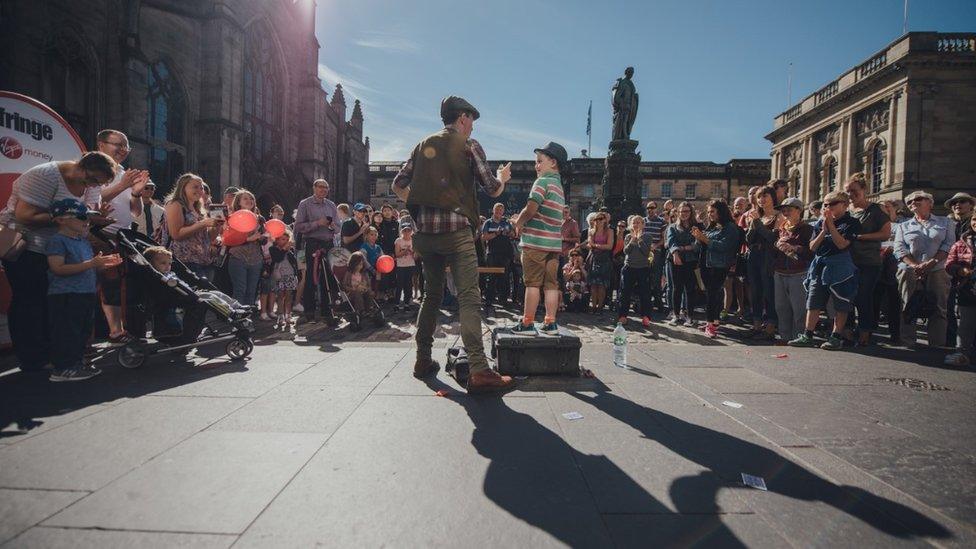Airbnb guests 'worth £48m' over Edinburgh Fringe
- Published

Airbnb guests are expected to boost Edinburgh's economy by £48m during the Fringe Festival, according to the company.
About 120,000 people have booked with the accommodation website for the festival which runs from 3-27 August.
They will spend an estimated £33m in shops, restaurants and at other businesses, Airbnb research suggests, with hosts earning a total of £15m.
The company is an official accommodation partner of the Fringe.
However, the short-term lets industry has been accused of depriving locals of housing and failing to contribute to the city's services and infrastructure.
Natasha Mytton Mills, Airbnb UK policy manager said: "Airbnb is proud to return as an official accommodation partner to one of the most vibrant and exciting cultural events in the UK."
The top destination for Airbnb guests over the festival is Leith, followed by the Old Town.
Spare bedroom
Many plan to continue their travels afterwards, with Glasgow the most popular choice followed by Inverness, Fort William, Oban and Skye.
Malcolm Roughead, VisitScotland chief executive, said: "Tourism today is all about consumer choice and we are lucky to have a range of options from the five-star experience to, now, the spare bedroom.
"The global reach of the Airbnb brand brings significant benefits to Scotland in terms of increased business and profile and also helps a lot during pressure points on accommodation such as the Edinburgh Festival."
Andy Wightman, housing spokesman for the Scottish Greens and MSP for Lothian, said: "There is a long tradition of festival lets in Edinburgh which are vital to the success of the Edinburgh Festival and Fringe.
"Airbnb, however, is a company that is turning a blind eye to unlawful short-term letting operations that are depriving local individuals and families of badly-needed long-term housing and depriving the city's services and infrastructure of millions of pounds in tax.
"It's disappointing to see the Fringe Society joining forces with the short-term lets industry when instead it could be working to balance sustainable tourism with the need to retain a sense of community in our capital city."